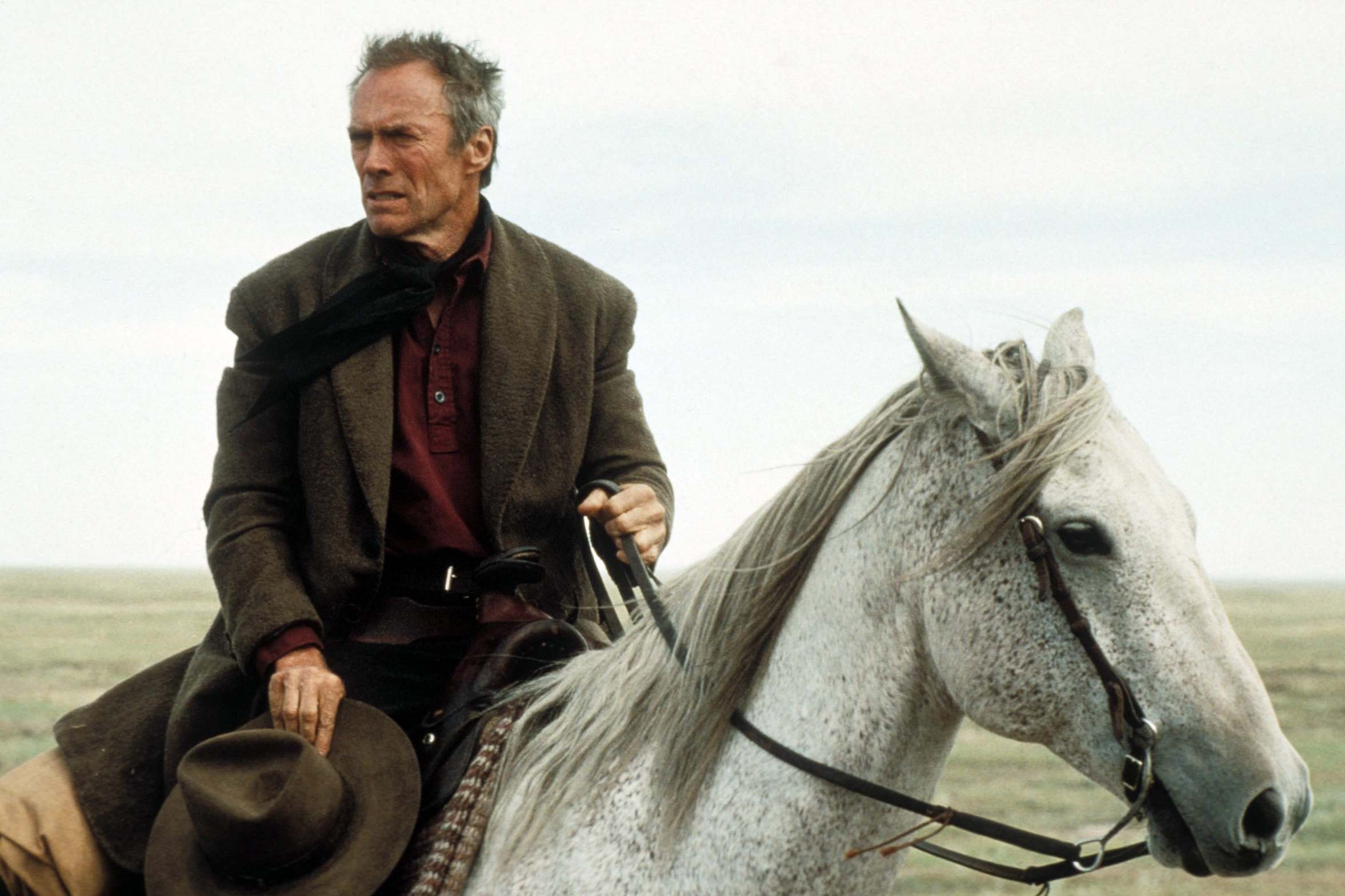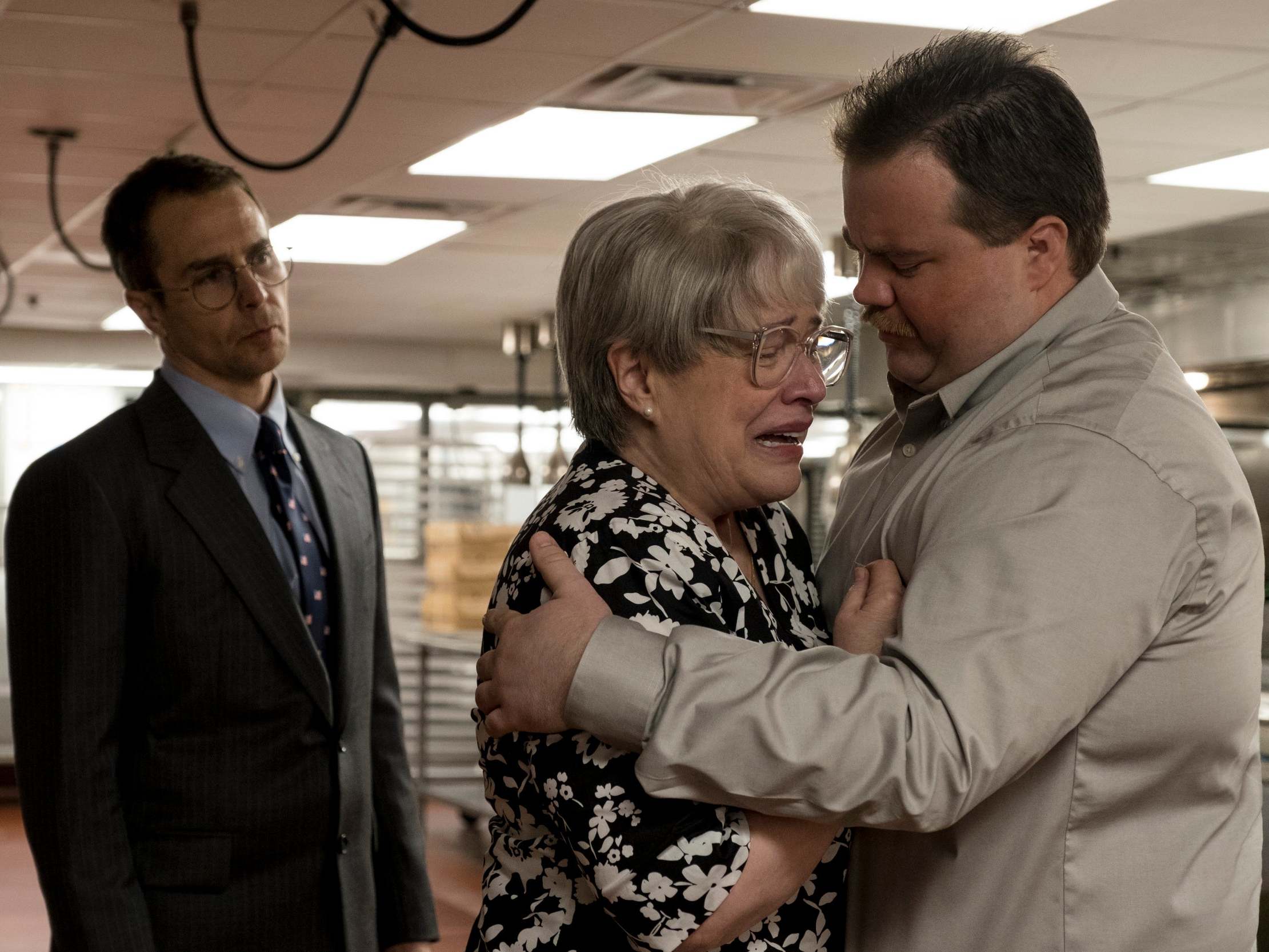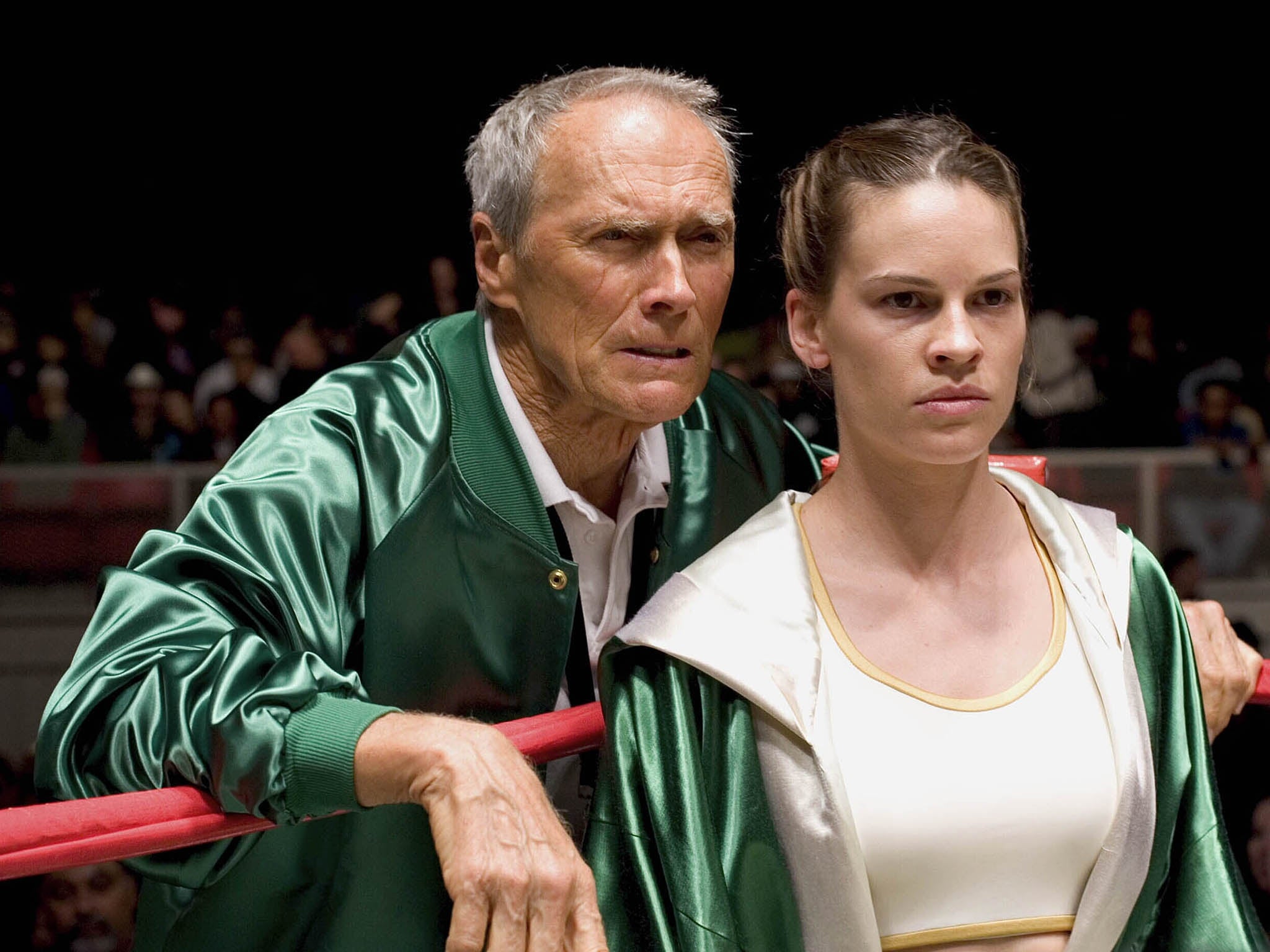How Clint Eastwood has continually defied expectations
Like anyone who has been around for so long, the venerable actor-director – who turned 90 last week – is now taken for granted, says Geoffrey Macnab

Clint Eastwood doesn’t like birthdays and a cake with candles wasn’t going to make his day when he turned 90 last week. Nonetheless, his son Scott Eastwood had promised to “smuggle one in”.
“He probably won’t like it but we will put one in,” Scott shared about the secret birthday plans with TV show Access Hollywood.
Scott’s remarks suggested that the Dirty Harry star and former mayor of Carmel is just as much a curmudgeon in real life as in many of his later screen roles. In his public pronouncements in recent years, Eastwood has sometimes sounded like a Californian version of 1970s British sitcom character, Alf Garnett. In a 2016 interview with Esquire magazine, he railed against political correctness and praised President Trump for “just saying what is on his mind” without censoring himself.
“We’re really in a pussy generation,” Eastwood lamented. “Everybody’s walking on eggshells.”
Eastwood turned 90 on the weekend when riots broke out all over the US in response to the murder of George Floyd, a 46-year-old unarmed black man asphyxiated by a white Minneapolis policeman. At such a moment, the legacy of Dirty Harry (1971), in which Eastwood played Inspector Harry Callahan for the first time, can’t help but seem shameful and tainted. It’s hard now to watch the film’s most famous scene without a shudder of disgust. This is when Harry, still chewing on his lunchtime hot dog, is shown standing over the body of a wounded African American with his 44 Magnum and saying to the man as he reaches for this own gun: “I know what you’re thinking: did he fire six shots or only five ... do I feel lucky today? Well, do you, punk?”
If Dirty Harry was all that there was to Eastwood, he would be beyond the pale. Few would be interested in celebrating his life and career.

Thankfully, Callahan is only a very small part of the story. Look over his credits both as actor and director and you realise Eastwood’s achievements are nothing short of monumental. There have been plenty of bad films and misjudgments along the way but Eastwood is the only figure in contemporary Hollywood who has picked up the mantle of directors like John Ford and Howard Hawks.
A self-professed libertarian, Eastwood frequently, and seemingly deliberately, contradicts himself. He became one of his generation’s biggest movie stars by playing vigilante cops, cold-blooded hunters and bounty killers. He wasn’t apologetic about it either. One of his biographers, Patrick McGilligan, cites a 1976 Village Voice interview in which he answered back against his critics in very strident fashion.
“So first I’m labelled right-wing. Then I’m a racist. Now it’s macho or male chauvinism. It’s a whole number nowadays to make people feel guilty on different levels. It doesn’t bother me because I know where the f*** I am on the planet and I don’t give a shit.”
The paradox was that audiences cherished him for his self-deprecating charm and vulnerability as much as for the unquenchable thirst for violence his movie characters so often showed. In those widescreen close-ups shot by Sergio Leone in the spaghetti westerns he made with Eastwood, the star looked far more like a saint than a thug.
Eastwood’s capacity to switch between the beatific and the bestial was underlined in his 1992 masterpiece, Unforgiven. In the film that he both directs and stars in, he plays a widowed farmer who was once a gunslinger and who returns to his murderous ways.
“You’d be William Munny out of Missouri, killer of women and children,” the sheriff “Little Bill” (Gene Hackman) snarls at him during the film’s climactic scene.
“That’s right. I’ve killed women and children. I’ve killed just about everything that walks of crawls at one time or another ... and I’m here to kill you, Little Bill,” Eastwood’s Munny growls back looking imperturbable as ever as the slaughter begins.
Eastwood is one of the few actors who could utter lines like these without forfeiting audiences’ sympathies. His expression doesn’t change but the spectators look into piercing blue eyes and convince themselves they see kindness and decency in them. Meanwhile, he blasts his enemies across the saloon and into kingdom come. If he was cast as Josef Mengele or Genghis Khan, these spectators would still struggle to take against him.
Nor, despite his provocative comments about Trump and political correctness, is Eastwood anything like the boneheaded reactionary that his opponents think he is.
Earlier this year, while publicising his latest feature Richard Jewell to The Wall Street Journal, Eastwood turned on Trump, complaining about the president’s relentless tweeting and calling for him to act in a “more genteel way”.
He also acknowledged the #MeToo generation “has its points” and applauded women for “standing up against people who are trying to shake you down for sexual favours”. He may have sounded patronising and out of touch but he wasn’t ducking the question.
It is a jarring but revealing experience to watch Eastwood’s 2003 documentary, Piano Blues. Eastwood narrates the documentary in the same quiet and hoarse whisper we’re used to hearing when he is about to consign some punk or outlaw to oblivion. “The piano is the most important musical instrument. George Bernard Shaw wrote its invention was to music what the printing press was to poetry,” Eastwood tells us, referring to Bach, Mozart and Beethoven before embracing his real subject – the use of piano in the blues. Eastwood doesn’t generally show obvious emotion about anything but, in the documentary, when he is discussing boogie-woogie, gospel, rhythm and blues, or quizzing Ray Charles about his career, the childlike enthusiasm is apparent. Jazz piano, it is clear, means even more to him than the 44 Magnum everyone previously thought was his favourite object in the world.
Eastwood is a throwback. The director he most resembles is Hawks, celebrated for his matter-of-fact approach to filmmaking and quiet professionalism. Hawks never indulged in formal flourishes for their own sake. He generally shot from eye-level because “that’s the way a man sees it”. Hawks was famously dismissive of Gary Cooper’s neurotic performance in Fred Zinnemann’s High Noon (1952), complaining that Cooper was “running around like a wet chicken and was not a professional”.
The tall, taciturn and laconic westerner Cooper is one of the old-school Hollywood stars Eastwood most similar to. His admiration for Cooper shines through in his voice-over for the documentary, Gary Cooper: American Life, American Legend (1989), directed by Richard Schickel who later wrote a biography of Eastwood. However, High Noon, an allegory about the McCarthy era witch hunts, features one of Cooper’s most febrile and least characteristic performances.

In his own films, you never see Eastwood running around like a wet chicken. He takes understatement to a level that would surely have earned Hawks’s approval. Even if he is made to crawl through the desert or is playing a martyr-like drifter given a ferocious beating, he will take the punishment without complaint. “Don’t just do something, stand there,” an acting teacher recommended early in his career and he has followed the advice religiously ever since.
As a director, Eastwood’s approach is pared down, generally without extravagant camerawork for its own sake. Apart from Stanley Kubrick, who also worked with Warner Bros, it’s hard to think of another filmmaker given such creative freedom by a major US studio. In Eastwood’s case, unlike that of Kubrick, the studio bosses knew that he would always bring his films in on time and on budget.
Occasionally, in recent years, his films have seemed sketchy and insubstantial, as if they’ve been made just a little too quickly. Take, for example, The 15:17 to Paris (2018), about the young Americans who apprehended a terrorist aboard a Brussels to Paris train. This played like a toneless, perfunctory travelogue with a script written on a postcard. Its one innovation was to cast the real-life heroes as themselves in a dramatised version of their story.
The Mule (2018), in which Eastwood starred as an elderly horticulturist who starts smuggling drugs for the Mexican cartels when his gardening business tanks, was much sprightlier and more enjoyable. Brandishing orchids as well as narcotics, the director-star was yet again sending up his own image as an action hero. That is something he has done throughout his career. In the 1970s, for example, he tried to undercut his Dirty Harry persona by co-starring with an orangutan called Clyde in Every Which Way But Loose (1978) which spawned a sequel, Any Which Way You Can (1980).
Eastwood never set out to be a director. As he told The New York Times in a 1993 interview, he took the job on Play Misty for Me (1971) to protect himself in case his acting career stalled. “I thought it was like building for the future, in case there came a time I shouldn’t be in front of the camera ... I had to think that 30 years down the line I not only might not like what I’d see but also not have the energy or enthusiasm for it.“
Since Play Misty for Me, Eastwood has gone on to direct more than 40 films. When Unforgiven, his 16th directorial credit, won him Best Picture and Best Director Oscars, many observers assumed he had reached the pinnacle. He was 62 by then, an age when most directors’ careers begin to slow down. In fact, his career was still only getting started. Since Unforgiven, he has racked up a mind-boggling number of further directorial credits.

People may think they know what they are getting with Eastwood but he continually defies expectations. His films over the last 20 years have been wildly varied both in subject matter and in quality. He has made musicals (Jersey Boys), sports movies (Invictus), war pictures (Flags of Our Fathers, the Japanese-language Letters from Iwo Jima, the gung-ho American Sniper), weepies (The Bridges of Madison County), stories about elderly astronauts (Space Cowboys), boxing films (Million Dollar Baby), disaster pictures (Sully), biopics (J Edgar), grumpy old man flicks (Gran Torino) and even a strange foray into the world of the supernatural (Hereafter). Ironically, the one genre he hasn’t revisited since the triumph of Unforgiven is the western. It’s an extraordinary record for someone whose film career began in earnest with a role alongside a talking mule in goofy comedy, Francis in the Navy (1955), and then as one of the stars of the long-running CBS TV series, Rawhide (1959-1965).
Critics continually write about Eastwood as a symbol of American masculinity in all its shades and contradictions. “His manner of representing maleness – with a sort of conscious unself-consciousness – is the largest source of his strength,” his biographer Schickel suggested. “A connection is made with our movie past and its traditional male modellings, but with a certain ironic distancing maintained, no descent into nostalgia permitted.” In other words, Eastwood the actor is a latter-day equivalent to the likes of Cooper and James Stewart. He acknowledges their influence but just doesn’t want to harp on about it.
It would be stretching it to suggest that Eastwood is also a “woman’s director” but several of his films after Unforgiven have given strong roles to female performers. Hilary Swank won an Oscar as the boxer in Million Dollar Baby (2004) while Angelina Jolie was nominated for one for her performance as the single mum in 1920s LA whose young son goes missing in The Changeling (2008). Meryl Streep was also Oscar-nominated for The Bridges of Madison County (1995).
Like anyone who has been around for so long, the venerable actor-director is now taken for granted. He is accused by some of manipulating his audiences and of indulging in gross sentimentality. Others, by complete contrast, rail against the machismo and lack of emotion in his work. Some persist in seeing him as Dirty Harry and either can’t forgive him for it while others still revere him for his political incorrectness. He has made so many movies in so many styles that fans and detractors can always find evidence to back their arguments for and against him.
What waits for Eastwood now? His most recent effort Richard Jewell, although respectfully reviewed, was one of his least successful films at the box office. His regular composer Lennie Niehaus died earlier this week. In such circumstances, lesser filmmakers might quit but Eastwood, one guesses, is too cussed for that. He’d far rather be making movies than blowing out birthday candles.
Eastwood’s latest film ‘Richard Jewell’ is available to stream now
Join our commenting forum
Join thought-provoking conversations, follow other Independent readers and see their replies
Comments